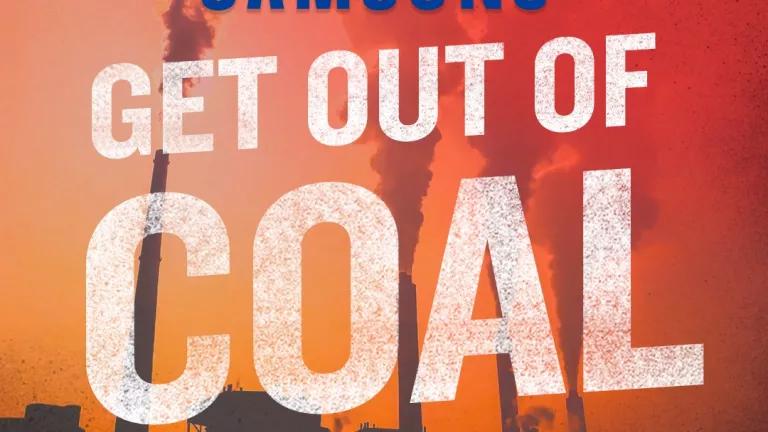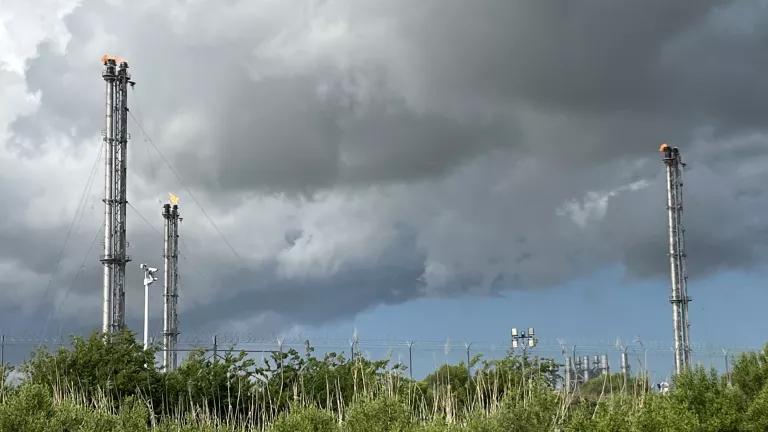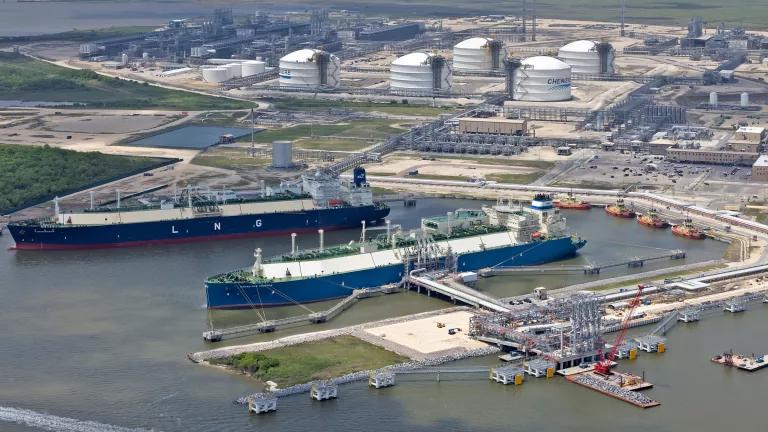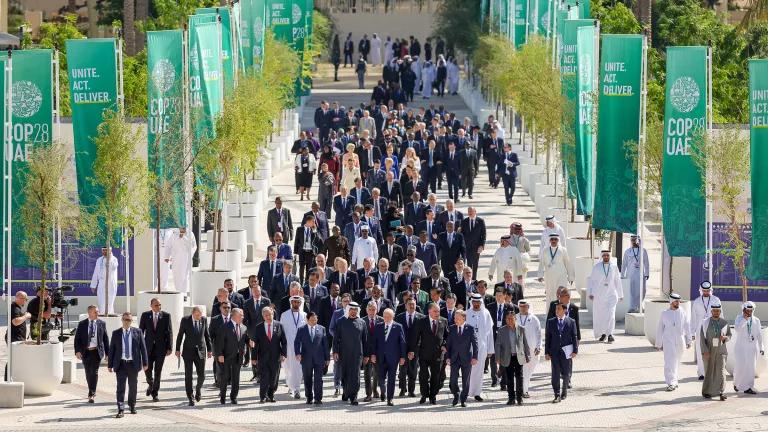Samsung’s “Exit” From Coal Does Not Include Planned Projects
Samsung C&T recently announced that the company would “exit” the coal business, but included huge loopholes in that policy. The “coal exit” policy commitment by Samsung is not meaningful if Samsung refuses to cancel its involvement in upcoming projects.

Samsung C&T recently announced that the company would “exit” the coal business, but included huge loopholes in that policy. The “coal exit” policy commitment by Samsung is not meaningful if Samsung refuses to cancel its involvement in upcoming projects. Samsung claims projects already announced should be allowed to proceed—even though some of these projects only involve Samsung on paper at the moment and were approved only a few weeks before the supposed Samsung “coal exit.” The Vung Ang 2 coal project was approved by developers the same month of Samsung’s alleged “coal exit” policy, despite very strong opposition by communities around the world for at least the past year calling on Samsung to avoid new coal plants in Korea and Vietnam.
NRDC supporters and groups in Korea and around the world have urged Samsung to avoid involvement in the Vung Ang 2 coal plant in Vietnam, the Gangneug Anin coal project, and the Samcheok coal project in Korea. Coal undermines Samsung’s reputation as an innovative leader in sustainability at a time of global transition and decarbonization.[1] Continuing these projects shows Samsung’s disregard for the Paris Agreement on climate change, which Samsung professes to support. It’s time for Samsung to end any financing, insurance for coal, trading of coal, mining of coal, and other coal-related activities—including for “pending” projects. It is not too late to back out of these projects. For example, the financial agreements needed to proceed with the Vung Ang 2 coal project have not been made, so there is a clear but short window of opportunity to walk away from the project. But, Samsung is refusing to do so, even while publicly proclaiming a “coal exit.”
Over 33,212 people have responded to the call to action from NRDC and sent letters to the boards of Samsung urging the company to end involvement in coal. They have said they will avoid purchasing products from Samsung and from affiliated companies in the US such as Harman and Dacor, until Samsung agrees to end involvement in coal. Samsung’s leadership has continued to ignore these voices asking Samsung to make the right call and stop contributing to the climate change problem.
Hundreds of millions of tons of unnecessary carbon emissions due to Samsung
The emissions from Samsung-affiliated coal plants that will be built are estimated to be tens of millions of tons of carbon dioxide per year, and hundreds of millions of tons during the anticipated 25-30 year lifetime of the plants. These estimates are based on pre-feasibility studies or environmental impact assessment disclosures for the plants. Vung Ang 2 coal plant’s pre-feasibility study indicated the plant will emit 6.6 million tons of CO2 each year of operation. The Samcheok plant’s Environmental Impact Assessment indicated the plant will emit 12.7 million tons of CO2 each year, while the Gangreung plant will emit 9.7 million tons of CO2 each year, based on the Environmental Impact Assessment. That’s a total of 29 million tons per year from these three projects. As there is no set lifetime for these projects, if we assume a conservative estimate of 25 years of operation, that’s a total of 725 million tons of CO2 for the lifetime for these projects. That’s more than the annual total CO2 emissions for the entire country of Germany, or the total of all international shipping. Given the hundreds of millions of tons of emissions associated with these plants, we will be urging Samsung’s major U.S. clients to limit transactions with Samsung until all affiliates of Samsung can demonstrate that they have lowered the carbon emissions footprint of the company.
Undermining global development goals, increasing local pollution
Samsung benefits from the appearance of sustainability by making mobile apps about the UN Sustainable Development Goals, but their continued support for coal undermines the SDGs. The Secretary General of the UN, the person ultimately responsible for implementing the SDGs, has stated very clearly that it is “essential to stop the construction of new coal-based power plants from 2020 onwards.” At the UN climate summit in December 2019, he further elaborated: “Either we stop this addiction to coal or all our efforts to tackle climate change will be doomed.” Samsung’s involvement in coal does not align with the SDGs or the recommendations of the UN Secretary General. Samsung must fully align with the SDGs Samsung says it supports by ending support for coal.
As The Business Roundtable (representing some of the world’s largest companies) stated last year, a business must not only think about its short term profits and shareholders, but about its customers, employees, suppliers, and communities. Harman International, a Samsung company, signed this statement last year. The type of coal projects Samsung wants to build do not bring long term benefits to communities. If Samsung ends its involvement in coal projects, this will prevent the premature deaths that will result from these coal plants. Samsung should take the health concerns of communities seriously. SOx, NOx and dust emissions from coal plants would elevate the levels of toxic particles and nitrous oxide in the air, increasing the risk of diseases such as stroke, lung cancer, heart and respiratory diseases in adults, as well as respiratory infections in children, leading to premature deaths in some cases. Coal plants would increase the risk of acid rain, which can affect crops and soils. Coal plants would release toxic heavy metals such as arsenic, nickel, chrome, lead and mercury.
Samsung must follow through and truly exit coal
If Samsung recognizes the enormous climate and health risks of coal and has committed to exit coal, there can be no unjustifiable exemptions.
- We strongly urge Samsung Fire and Marine Insurance not to underwrite any activities related to the development and construction of coal, starting with Vung Ang 2.
- We also ask Samsung FMI to adopt a policy that will immediately end insurance services and investments in coal projects and coal companies. Many global investors and insurers have already formalized such policies.
- We urge Samsung C&T to end involvement in construction of Vung Ang 2 and Gangneung Anin, and other forms of involvement in coal mining and trading worldwide.
- And we urge all other Samsung affiliates to end other forms of involvement in coal.
Samsung’s refusal to stop all plans for upcoming coal projects betrays the weakness of their coal “exit” pledge. It’s time to get serious and walk away from bad projects—it’s not too late.
[1] We are addressing our concerns to all parts of Samsung, recognizing the affiliate relationship between Samsung entities as detailed on Samsung’s website, and due to the fact that different parts of Samsung are large shareholders of one another and listed as related parties in Samsung documents. Samsung Electronics shareholders include Samsung Life Insurance Company, Samsung C&T, Samsung Fire & Marine while Samsung C&T holds shares in Samsung Life and Electronics, for example.


